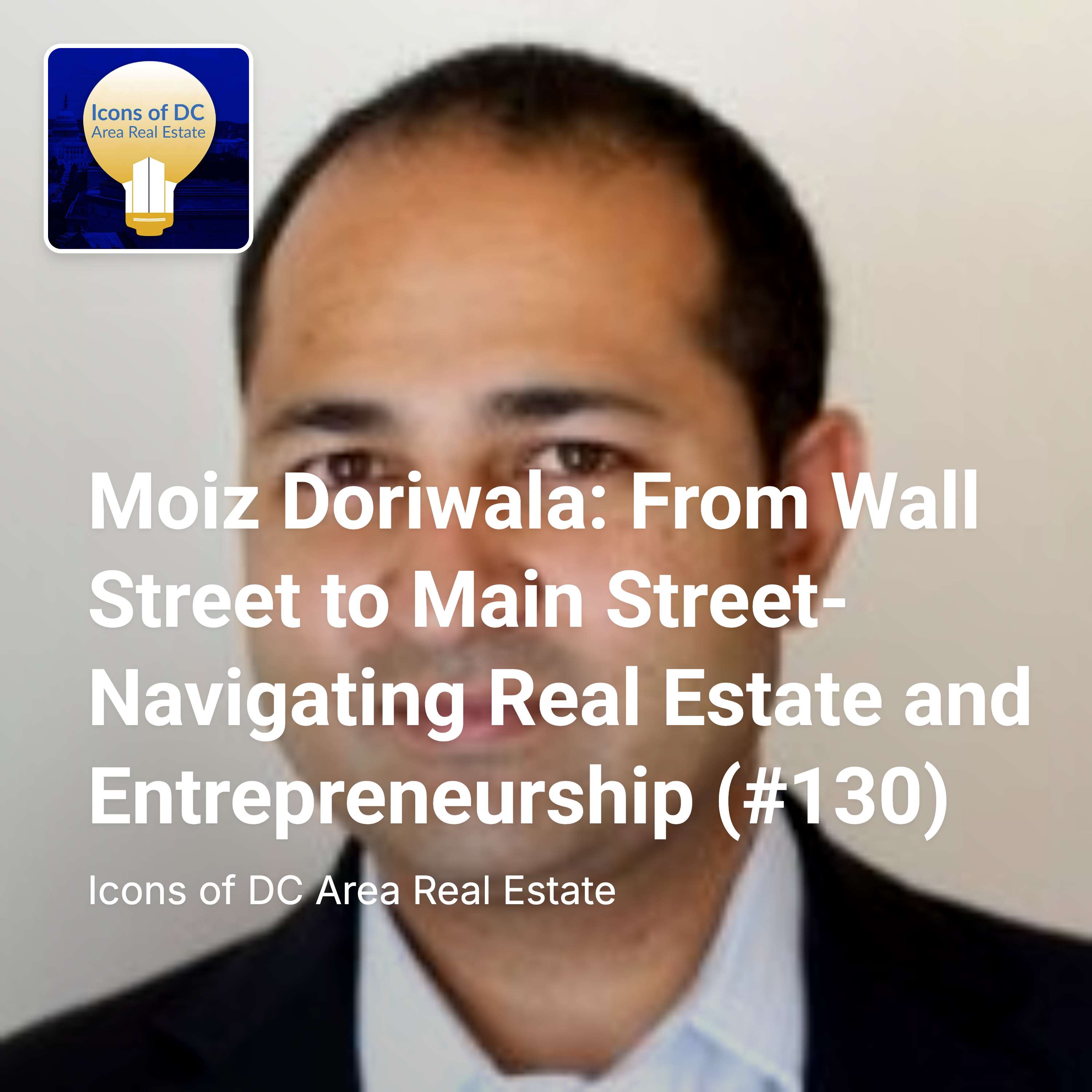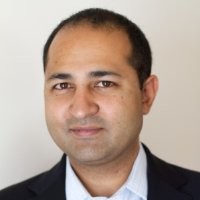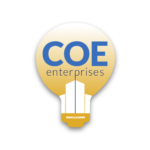

Bio
Moiz Doriwala is a seasoned professional with a diverse background spanning real estate finance, investment, and entrepreneurship …. Growing up in Naperville, Illinois, his interest in real estate was sparked by his father’s career as a general contractor and developer.
He pursued higher education, earning a Bachelor of Arts degree in Economics from the University of Chicago and an MBA in Finance and Management and Strategy from Northwestern University’s Kellogg Graduate School of Management. His early career began in the finance sector with a unique rotational program at Bank One (later JP Morgan Chase), where he gained experience in asset-backed securities trading, commercial loan workouts, leveraged leasing, and even worked in a strategic group under Jamie Dimon. He further honed his investment banking skills in the Financial Sponsor Group of J.P. Morgan Securities in New York, focusing on M&A transactions and various financing activities.
In 2005, Mr. Doriwala transitioned to the real estate industry, joining S&R Land Development, LLC in Reston, VA, where he was involved in the development of residential and commercial land. Leveraging his financial acumen and real estate exposure, he later became Vice President of Perseus Realty Capital, LLC, specializing in joint venture equity, preferred equity, and mezzanine financings.
In 2008, Mr. Doriwala formed his own umbrella company, Stirling Realty Advisors, LLC, a boutique real estate investment bank that provides financial advisory services, primarily focusing on raising debt and equity capital for real estate developers and operators nationwide. While initially focused on capital raising, Stirling has evolved into a vehicle for his various investment activities.
Under the Stirling umbrella, Mr. Doriwala manages and invests in several businesses, including:
- Bookhill Park: An entity that manages a series of small funds and operates as a finance company, providing opportunistic lending across various industries and geographies
- Investments in mental health and behavioral health businesses
- Investments in one off LPs in apartment projects
- His role as President of Superior Living Foundation Inc., a 501c3 non-profit focused on owning businesses in the healthcare region, such as senior housing and behavioral health facilities1 ….
Mr. Doriwala also has experience in the senior housing sector, having served as Treasurer for Meridian Senior Living …. Additionally, he was involved in the mobile home park business for a number of years through BHP, building and eventually exiting a portfolio of parks.
Throughout his career, Mr. Doriwala has demonstrated an opportunistic and entrepreneurial approach, building strong relationships and a reputation for his ability to navigate complex transactions and provide creative financial solutions. He values strong partnerships, thorough due diligence, and trusting his instincts in his investment decisions.
Show Notes
- [6:30] Introduction to Moiz Doriwala and his diverse business background. He manages or participates in managing at least three businesses.
- [7:00] Overview of Sterling Realty Advisors. Formed in 2008 as an umbrella company for advising real estate operators and developers on capital raising (joint venture equity, mezz, preferred equity, debt financing). Now primarily a vehicle for personal and business investment activities.
- [7:50] Discussion of Sterling as an investor. Investing in individual real estate projects and companies, often as a passive investor or advisor.
- [8:20] Introduction to Bookhill Park. An entity managed by Moiz, functioning as a finance company providing loans across various industries and geographies, focusing on the borrower and path to repayment.
- [9:10] Overview of investments in mental health and behavioral health businesses.
- [9:20] Moiz’s role as President of Superior Living Foundation Inc. A 501c3 non-profit focused on owning businesses in the healthcare region (senior housing, behavioral health, substance abuse).
- [9:55] Moiz shares his origins and early life in Naperville, Illinois. Noteworthy growth of the suburb outside Chicago.
- [10:40] Influence of his father’s career as a general contractor and developer on his early real estate exposure.
- [11:05] Initial aspirations to be a lawyer but a shift to finance and banking during college at the University of Chicago (Economics).
- [11:30] First job at Bank One and the unique two-and-a-half-year rotational program with simultaneous part-time MBA at Northwestern Kellogg.
- [12:15] Rotations at Bank One: Asset-backed securities trading desk, managed assets (commercial loan workout group, including the Safety Clean bankruptcy), leveraged leasing group, and “skunk works” group working directly for Jamie Dimon.
- [14:30] Rotation in the banks’ merger and acquisition (M&A) group.
- [14:45] Unique aspect of the Bank One program: Obtaining an MBA (paid for by the bank) through evening classes while working full-time.
- [16:15] Jamie Dimon’s arrival at Bank One as CEO during Moiz’s time there.
- [16:30] Merger of Bank One with JP Morgan Chase and Moiz’s move to New York to work in the investment bank’s financial sponsors group.
- [16:45] Fond memories of working in JP Morgan’s financial sponsor group. Considered a top group on the street with a strong balance sheet and access to private equity firms.
- [18:40] Decision to leave JP Morgan in 2005 due to his wife’s desire to return to the DC area and the demanding hours of investment banking.
- [19:30] Intense work hours in investment banking: Regularly working 12+ hour days, seven days a week, sometimes sleeping at the office.
- [20:15] Wife’s background in the real estate industry and understanding of the demanding work schedule.
- [20:20] Opportunity to join his wife’s family’s business in land development in the growing DC area, prompted by his father-in-law coming out of retirement to help a large home builder.
- [20:50] Reasons for leaving high finance for land development: Opportunity to learn real estate on someone else’s dollar, educational and financial rewards, and the desire to move to DC.
- [21:30] Eye-opening experience transitioning from Wall Street to land development. Different work hours and the need for patience when dealing with the public sector.
- [23:15] Realization that residential land development was not the right fit.
- [23:30] The financial crisis impacting the land development industry. Fortunate timing of selling their last project before the major downturn.
- [24:25] Pivoting after the financial crisis to Perseus Realty Capital. A brokerage firm focused on financing real estate transactions (joint venture equity, mezzanine, preferred equity).
- [25:15] Reasons for choosing Perseus over larger national players: Desire for a smaller, newer firm with more control over destiny, having experienced both very large and very small companies.
- [26:25] Perseus’s evolution to PRP real estate and shift from intermediary to asset management.
- [26:45] Learning curve at Perseus regarding traditional real estate financing. Understanding mortgage financing, mezzanine debt in real estate, and the role of institutional investors and private equity funds.
- [27:45] Focus on networking and finding new sources of capital for clients at Perseus.
- [28:50] Most challenging deal at Perseus: A high-rise residential building in Denver during the financial crisis where the senior loan fell through after construction began.
- [29:30] Securing mezzanine financing for the Denver project with another intermediary bringing in Corus Bank as the senior lender.
- [30:10] Challenges with Corus after Starwood took over, transitioning from dealing with a bank to an opportunity fund.
- [31:10] Comparison of the lending environment today (more cautious with lower loan-to-cost, higher rates, stronger covenants) compared to before COVID.
- [32:30] Overview of Bookhill Park’s lending activities. Opportunistic lending beyond just real estate, including first and second mortgages, mezzanine, unsecured and secured loans, asset-based loans, inventory financing, payroll loans to government contractors, and factoring.
- [33:20] Origin of Bookhill Park’s lending business: Helping a government contractor with payroll financing due to challenges with traditional bank lending for new contractors.
- [34:20] Higher return expectations in Bookhill Park’s early lending days (17%+) compared to today (12-15%) due to increased private credit competition.
- [36:00] Impact of higher generic interest rates versus the decrease in Bookhill Park’s targeted returns due to market competition.
- [36:50] Bookhill Park’s patient capital base (personal capital, friends, family, investors) allows for selectivity in deals.
- [38:10] Evolution of Stirling Realty Advisors post-Perseus, focusing on national JV equity and mezzanine raising with a business partner.
- [38:50] Strategies for finding clients and investors: Networking at conferences (ULI), cold calling developers, and building relationships.
- [39:55] Business partner’s departure and Moiz continuing as a sole entrepreneur with Stirling, leading to involvement in other businesses through new partnerships.
- [40:30] Evolution of the senior living business involvement. Initial capital raising for healthcare deals leading to a role at Meridian Senior Living.
- [41:20] Role as Treasurer at Meridian Senior Living. Initially part-time but became more significant, involving corporate infrastructure and learning the operations-focused nature of the healthcare business.
- [42:50] Financing structure of Meridian Senior Living: Real estate financed by traditional sources (opportunity funds, REITs) through leases, while operations were primarily financed by the three partners.
- [43:20] Involvement in raising capital for Meridian.
- [43:30] Managing banking relationships at Meridian. The partners had existing relationships, but Moiz also brought new ones.
- [44:20] Growth and evolution of Meridian: Hiring a full-time treasurer and assistant treasurer, and starting ancillary businesses (pharmacies, therapy business).
- [45:20] Parallel development of Bookhill Park and how relationships from the senior housing business led to healthcare lending deals.
- [46:00] Bookhill Park’s unique lending advantage in the senior housing space: Ability to potentially take over management due to the operating company connection.
- [46:30] Bookhill Park’s partnership with regional banks to do larger “A/B” structure loans, effectively syndicating the “A” piece.
- [48:30] Mobile home park business (BHP): Parallel investment with a different group of partners, attracted by limited supply and affordable housing characteristics.
- [50:15] Portfolio size of mobile home parks at its peak.
- [50:20] Opportunistic investment strategy leading to eventual exits from mobile home park projects.
- [50:45] Sale of a well-located mobile home park in Maryland after a short ownership period due to a strong offer.
- [51:30] Institutionalization of the mobile home park space over the last 15 years, leading to increased competition and higher acquisition costs, making current returns less attractive.
- [52:00] Challenges in the current mobile home park market: Increased broker presence and sellers having unrealistic price expectations.
- [52:50] Differences between mobile home park and traditional multifamily operations.
- [53:10] Section 8 in mobile home parks.
- [53:30] Potential future re-entry into the mobile home park market when institutional capital exits.
- [54:10] Formation of Superior Living Foundation Inc. (501c3) in 2017 by the principals at Meridian Senior Living to grow their presence in senior housing and healthcare through tax-exempt opportunities.
- [56:00] Avoiding conflicts of interest between the non-profit and for-profit entities. Independent board for the non-profit making decisions at market rates with multiple operator options.
- [57:15] Interesting financing assignments: Maritime claim settlement through Bookhill Park, involving learning about maritime law and insurance claims.
- [59:30] Recent closing of a 14-property skilled nursing portfolio acquisition by Superior Living Foundation. A tax-exempt bond deal with institutional buyers, aimed at growing the foundation’s ability to provide healthcare services.
- [1:01:30] Reflection on John’s early prediction of Moiz’s success and their collaborative transactions over the years.
- [1:01:45] Moiz’s experience in the ULI mentorship program with John as his mentor.
- [1:02:30] Value of their ongoing relationship and how it has led to successful introductions and investment opportunities, including a senior housing deal in Florida and multiple investments in a former mentee’s multifamily projects.
- [1:04:40] Advice for young listeners on investment criteria and sponsor selection. Prioritizing the sponsor, location, and the sponsor’s financial resources and “skin in the game.”
- [1:07:00] Views on signing recourse loans. Moiz’s partner’s perspective on the development game.
- [1:08:00] Not personally willing to act as a co-GP solely for providing a guarantee.
- [1:08:30] Ability to bring both equity and a guarantor to a deal.
- [1:08:45] The unique aspect of Moiz’s ability to raise capital and bring a group of investors to deals.
- [1:09:50] Investment philosophy and what sets Moiz apart: Creativity without a fixed “box,” focusing on the story and exit, and a commitment to doing what they say they will.
- [1:12:00] Clarification on partnership structure: While Stirling is his sole business, almost all other ventures involve partnerships.
- [1:12:30] Importance of having partners to bounce ideas off of.
- [1:13:00] Time management strategies: Making lists, prioritizing, managing multiple transactions, relying on mental organization, and detailed calendar use.
- [1:14:20] Financial management: Working with an accountant and using QuickBooks for many entities.
- [1:15:15] Lean administrative structure.
- [1:16:00] Personal management of investor payouts for Bookhill Park.
- [1:16:30] Utilizing technology for tracking investments (example of Colin’s investor portal) and the recommendation to invest in such technology.
- [1:17:00] Limited personal exploration of AI but an interest in future use.
- [1:17:30] Use of a wealth management firm with strong technology to track personal and investment financials.
- [1:17:45] Effectively having a “family office” through their wealth management firm’s tracking capabilities.
- [1:18:30] Ensuring his wife knows the location of important financial information.
- [1:19:00] Challenging trends and unique opportunities in investments and capital markets today: Uncertainty due to government changes, tariffs, and financial market fluctuations. Lending still tough, potential impact of rising unemployment on real estate. Possible positive impact on office sector.
- [1:20:30] Trends in the senior housing business: Demographic upside (“silver tsunami”) but challenges with increasing labor, food, and supply costs not yet matched by rent increases. Impact of stock market and interest rates on affordability. Financing and construction costs remain high.
- [1:22:00] Dynamics in the skilled nursing space: Reliance on Medicaid with capped payments and potential cuts creating nervousness.
- [1:23:15] Growth potential in healthcare in general and the role of AI.
- [1:23:45] Growth potential in the energy business, including passive energy.
- [1:24:00] Concerns and questions surrounding the office sector: Return to office trends, occupancy rates, and the efficiency of operating buildings with hybrid work models. Impact on retail demand.
- [1:24:45] Approach to future investments: Remaining opportunistic and open-minded across various sectors, continuing high-quality lending and partnerships, and focusing on good real estate in prime locations.
- [1:26:00] The unique value of Moiz’s diverse experience across institutional finance, small entrepreneurial groups, agency, and principal roles.
- [1:26:15] Accepting that not all ventures will succeed and the importance of learning from both successes and failures.
- [1:26:45] Most surprising lessons learned: No guarantees in business or life, and the critical importance of personally verifying key information rather than solely relying on team members or partners.
- [1:28:30] Advice to his 25-year-old self: Be curious, be patient, be a hustler, slow down (balance opportunism with thorough execution), and be passionate.
- [1:29:55] Priorities of family, work, and giving back: Family is paramount with a focus on spending time with his children. Strong emphasis on giving back in the education space, both domestically and internationally.
- [1:30:30] Supporting various educational organizations.
- [1:31:30] Final question: What would a billboard on the Capitol Beltway say? “Trust your gut.”
- [1:32:00] Reflection on times when trusting his gut paid off and, more significantly, times when ignoring his gut led to negative outcomes.
- [1:32:20] Accepting missed opportunities without regret.
- [1:33:20] Thank you and closing remarks.
